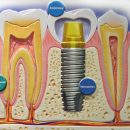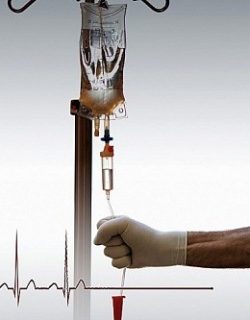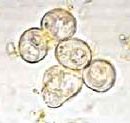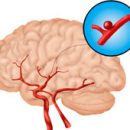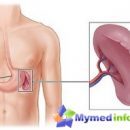Therapeutic effect of the procedure
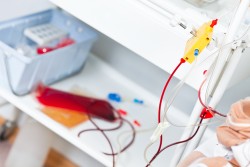
Blood can be divided into two components: liquid and cellular. The cell component is represented by uniform elements of blood (erythrocytes, leukocytes and platelets), and liquid - directly plasma, which consists of protein and salt solutions, there are also connections dangerous to the body there.
Plasmapheresis procedure has a pronounced medical effect: when removing part of the plasma, the patient's body leaves and harmful substances that caused a different disease. Such «pests» It is considered cholesterol, urinary acid, pathological proteins, protein decay products. The affected organs and their systems will begin to function better as soon as the qualitative characteristics of the patient will increase. In addition, it can be noted another positive side of Plasmapheresis: as a result of mechanical blood purification from harmful toxins, the body forms a response - mobilizes its protective forces.
Most often, plasmapheresis include comprehensive therapy, since its use does not always give visible results as an independent procedure, and the effect remains for a while. The method of mechanical blood purification is combined, as a rule, with such therapeutic procedures that partially do not allow blood saturation toxins, the formation of hazardous compounds in the body itself, and also stimulate their unimpeded removal from the body.
Methods of procedure

The list of pathologies in which the patient is shown plasmapheresis is very extensive, and our site once again reminds that a persistent positive effect after such a cleansing procedure is observed only in a complex with other therapeutic methods. Mechanical blood purification is advisable to apply under the following diseases and conditions:
- multiple myeloma;
- Mass destruction of red blood cells inside vessels;
- free moglobin in the blood;
- hemoglobinopathy;
- intoxication of poisons of chemical origin;
- Porphyria;
- Miasti;
- Hassera disease.
Mechanical blood purification is also beneficial on the patient with such diseases:
- rheumatism;
- viral myocarditis;
- chronic pneumonia;
- bronchial asthma;
- Crohn's disease;
- ulcerative colitis;
- diabetes;
- psoriasis;
- herpes;
- Nutty rash;
- endocrine diseases of the organs of vision;
- Glomerulonephritis;
- Encephalitis caused by allergies;
- atherosclerosis;
- systemic vasculitis;
- rejection of the transplanted organ;
- extensive burns;
- acute peritonitis;
- sepsis.
Contraindications to the procedure

Unfortunately, even such a useful, at first glance, the procedure, like Plasmapheresis, has side effects. This is the fact that in the composition of blood plasma, the body leaves and useful substances useful for the body: proteins (including immunoglobulins) and components of the blood coagulation system (Protromine, Fibrinogen). On this basis, blood purification is not carried out if the patient is diagnosed with a low level of protein in the blood, as well as with a high probability of bleeding (usually happens, if the liver is strongly affected).
Contraindications to Plasmapheresis are divided into absolute and relative.
Absolute contraindications include serious damage to vital organs (brain, heart, lungs, kidneys or liver), massive bleeding.
Relative contraindications are considered high bleeding and a large risk of developing bleeding on the basis of various diseases (for example, Stomach ulcers and 12-rosysome), lack of stability in the circulatory system (hypotension), low protein concentration in blood, diseases of infectious origin, pregnancy and monthly.
We list absolute contraindications to Plasmapheresis:
- Overload of the cardiovascular system (in particular the right hearts of the heart).
- Pathological fission of brain vessels due to impaired cerebral circulation.
- Excessive increase in blood pressure.
- Narcological dependence and other neuropsychiatric disorders.
- Anemia.
- Too thick blood.
- Acute or chronic liver dysfunction.
Session of blood purification in the presence of listed diseases may result in a patient with a fatal outcome.
Controversial is the question of the use of plasmapheresis to get rid of the patient from alcohol dependence. Although using this procedure and you can Disable alcohol From blood, after some time, an abstineent syndrome is inevitably developed, expressed by any neuropsychiatric disorder, violation of the activity of the cardiovascular system, brain swelling, liver dysfunction. In short, apply plasmapheresis in the treatment of drug treatment patients is impractical and dangerous for the life of patients. Alcoholism and drug addiction are well amenable to the treatment of xenonotherapy.
Possible complications of the procedure

As practice has shown, the human body, which has no contraindications to Plasmapheresha, can respond to this method of blood purification completely unpredictable. These are complications manifested in patients as a result of treatment:
- Anaphylactic shock. Allergic reaction is manifested by chills, various vegetative disorders, hemodynamic disorders and leads to death in 60% of cases.
- Hypotension. Blood pressure dramatically decreases, which leads to a deficiency of oxygen in the brain. About 60% of cases end in lifetime disability or fatal.
- Extensive bleeding (in erosion and ulcers of the gastrointestinal organs), which is sometimes extremely difficult to stop, so the patient will urgently reanimate. Single lethal cases were registered.
- Citrate intoxication. Happens not often - the patient falls into someone and dies.
Special preparation before the procedure of mechanical blood purification is not provided, as well as there are no special recommendations after it.

